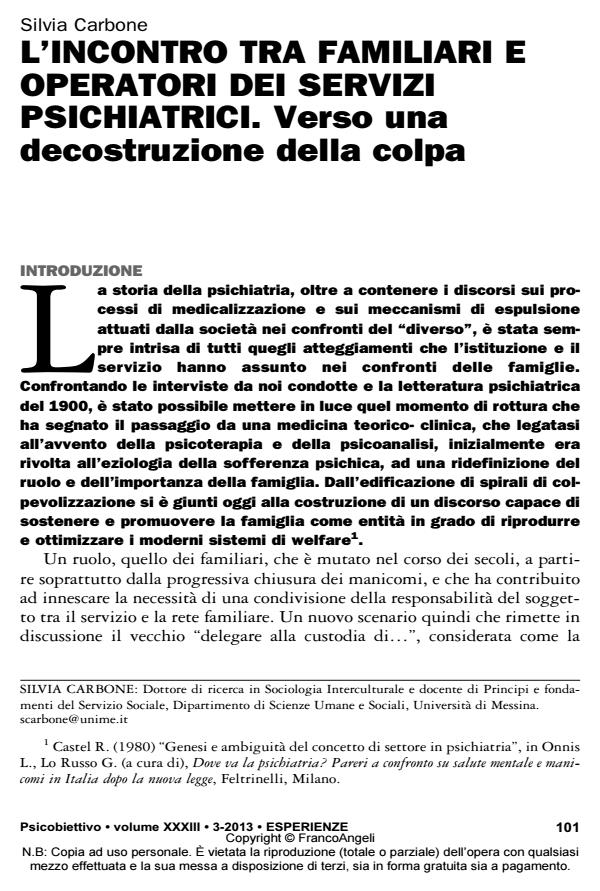Psychiatric workers and family members. towards a deconstruction of the blaming
Journal title PSICOBIETTIVO
Author/s Silvia Carbone
Publishing Year 2014 Issue 2013/3
Language Italian Pages 1 P. 101-121 File size 153 KB
DOI 10.3280/PSOB2013-003006
DOI is like a bar code for intellectual property: to have more infomation
click here
Below, you can see the article first page
If you want to buy this article in PDF format, you can do it, following the instructions to buy download credits

FrancoAngeli is member of Publishers International Linking Association, Inc (PILA), a not-for-profit association which run the CrossRef service enabling links to and from online scholarly content.
The last decade, family’s role is therefore redefined and it has gained importance to become the main focus for dialogue for mental health services. The new interactions between the mental health services and the family have led to different requests and, thus, different expectations, tools and resources. Both services and family are essential to the patient’s journey towards rehabilitation, but the road is not without obstacles and conflict. Can the multiplication of opportunities for contact between psychiatric worker and family members, foster the emergence of attitudes of blame on the part of the psychiatric worker to the family members, based on the influence of these theoretical orientations systemic-relational beginning of the twentieth century that reorganized in the family to be a contributory cause of the suffering of their loved? This research was conducted in structures of public intervention in Rome. The characteristic of the relational context of investigation led to favor qualitative analysis tools. Twenty-six interviews were conducted with psychiatric worker.
Keywords: Family; Mental Health; Sociology; Blaming; Health Services Research.
Silvia Carbone, L’incontro tra familiari e operatori dei servizi psichiatrici. Verso una decostruzione della colpa in "PSICOBIETTIVO" 3/2013, pp 101-121, DOI: 10.3280/PSOB2013-003006